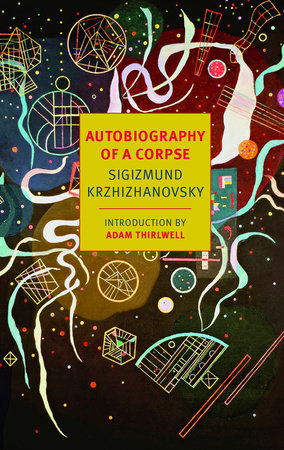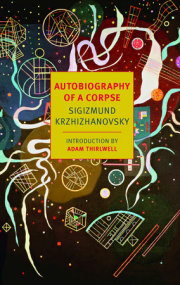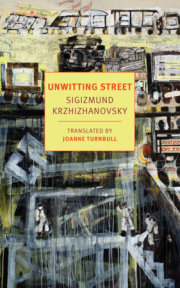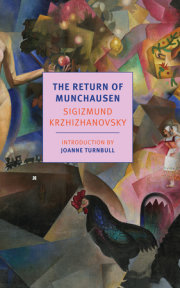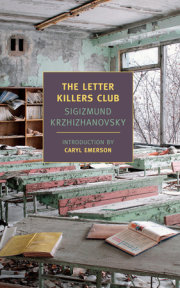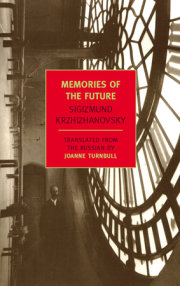The stakes are wildly high in Sigizmund Krzhizhanovsky’s fantastic and blackly comic philosophical fables, which abound in nested narratives and wild paradoxes. This new collection of eleven mind-bending tales includes some of Krzhizhanovsky’s most dazzling conceits: a provincial journalist who moves to Moscow finds his existence consumed by the autobiography of his room’s previous occupant; the fingers of a celebrated pianist’s right hand run away to spend a night alone on the city streets; a man’s lifelong quest to bite his own elbow inspires both a hugely popular circus act and a new refutation of Kant. Ordinary reality cracks open before our eyes in the pages of Autobiography of a Corpse, and the extraordinary spills out.
“Krzhizhanovsky wanted to perform imaginary experiments with the nature of time and space. Outside, in the streets, the Communist state was busy performing such experiments for real. In response, Krzhizhanovsky’s prose has a recklessly unstable tone in which delighted examination of impossible worlds can slip into ferocious political sarcasm.... It is a method for investigating how much unreality reality can bear.” –Adam Thirlwell, The New York Review of Books
“Krzhizhanovsky’s stories are more like dream diaries than fiction. Quite intentionally, he blurs the line between sleep and waking, real and unreal, life and death. While his translators admirably convey the whirligigging quality of his narratives, Krzhizhanovsky’s peregrinations demand unstinting focus and frequent compass checks. His characters often seem half, or wholly, asleep.... In Krzhizhanovsky’s tales, relics of a future past, he transports readers back to the present he renounced, to a life that’s ‘not-life, a gap in existence’–a place from which he sought refuge in fiction and dreams.” –Liesl Schillinger, The New York Times Book Review
“There was probably no worse time and place to be a postmodernist sage than in 1920s Russia. Still, bibliophiles like to believe that genius makes itself known, regardless of social pressures, and in the case of Ukraine-born Sigizmund Krzhizhanovsky, they may have a point–only it took about six decades for anyone else to catch on.... For all the cemetery...Krzhizhanovsky is also hilarious, and one wonders whether that might have troubled the Bolsheviks as much as anything in his work. Krzhizhanovsky understood the potency of juxtaposing wit with terror and the sacred with the profane.” –Los Angeles Times
“[A]n awareness has grown that Krzhizhanovsky belongs with the best of the Russian prose writers who came to maturity in the post-Revolutionary decade. Like them, he sought and developed a new aesthetic in an altered world; and like them, he was soon thrown back on himself.” –Oliver Ready, Times Literary Supplement

